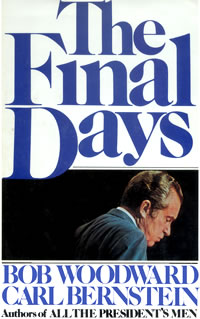
The Watergate scandal was a major political scandal in the United States involving the administration of President Richard Nixon from 1972 to 1974 that led to Nixon's resignation. The scandal stemmed from the Nixon administration's attempts to cover up its involvement in the June 17, 1972, break-in of the Democratic National Committee headquarters in Washington, D.C., at the Watergate Office Building.

All the President's Men is a 1974 non-fiction book by Carl Bernstein and Bob Woodward, two of the journalists who investigated the June 1972 break-in at the Watergate Office Building and the resultant political scandal for The Washington Post. The book chronicles the investigative reporting of Woodward and Bernstein from Woodward's initial report on the Watergate break-in through the resignations of Nixon Administration officials H. R. Haldeman and John Ehrlichman in April 1973, and the revelation of the Oval Office Watergate tapes by Alexander Butterfield three months later. It relates the events behind the major stories the duo wrote for the Post, naming some sources who had previously refused to be identified for their initial articles, notably Hugh Sloan. It also gives detailed accounts of Woodward's secret meetings with his source Deep Throat, whose identity was kept hidden for over 30 years. Gene Roberts, the former executive editor of The Philadelphia Inquirer and former managing editor of The New York Times, has called the work of Woodward and Bernstein "maybe the single greatest reporting effort of all time."

Robert Upshur Woodward is an American investigative journalist. He started working for The Washington Post as a reporter in 1971 and now holds the title of associate editor.
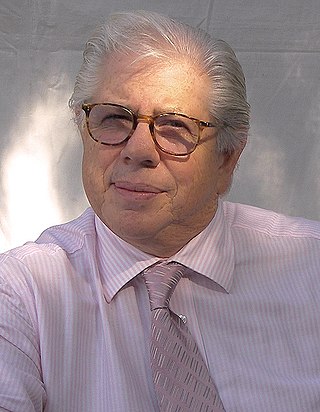
Carl Milton Bernstein is an American investigative journalist and author. While a young reporter for The Washington Post in 1972, Bernstein was teamed up with Bob Woodward, and the two did much of the original news reporting on the Watergate scandal. These scandals led to numerous government investigations and the eventual resignation of President Richard Nixon. The work of Woodward and Bernstein was called "maybe the single greatest reporting effort of all time" by longtime journalism figure Gene Roberts.

Deep Throat is the pseudonym given to the secret informant who provided information in 1972 to Bob Woodward, who shared it with Carl Bernstein. Woodward and Bernstein were reporters for The Washington Post, and Deep Throat provided key details about the involvement of U.S. president Richard Nixon's administration in what came to be known as the Watergate scandal. In 2005, 31 years after Nixon's resignation and 11 years after Nixon's death, a family attorney stated that former Federal Bureau of Investigation (FBI) Associate Director Mark Felt was Deep Throat. By then, Felt was suffering from dementia and had previously denied being Deep Throat, but Woodward and Bernstein then confirmed the attorney's claim.
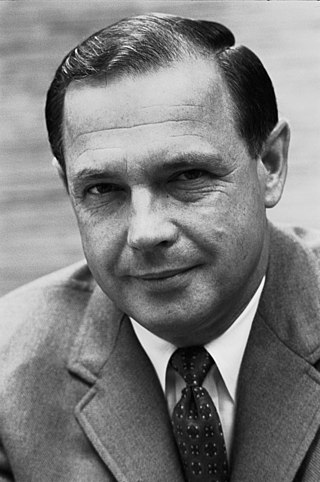
Alexander Porter Butterfield is a retired United States Air Force officer, public servant, and businessman. He served as the deputy assistant to President Richard Nixon from 1969 to 1973. He revealed the White House taping system's existence on July 13, 1973, during the Watergate investigation but had no other involvement in the scandal. From 1973 to 1975, he served as administrator of the Federal Aviation Administration.
Hugh W. Sloan Jr. was treasurer of the Committee to Re-elect the President, Richard M. Nixon's 1972 campaign committee. Previously, he was an aide to White House Chief of Staff H.R. Haldeman.
Ken Wade Clawson was an American journalist, best known as a spokesman for U.S. President Richard Nixon at the time of the Watergate scandal. He was promoted from Nixon's deputy director of communications to director in early 1974 as the scandal continued to unfold, and following Nixon's resignation in August 1974, Clawson continued in the same role for three months under President Gerald Ford.

William Mark Felt Sr. was an American law enforcement officer who worked for the Federal Bureau of Investigation (FBI) from 1942 to 1973 and was known for his role in the Watergate scandal. Felt was an FBI special agent who eventually rose to the position of Deputy Director, the Bureau's second-highest-ranking post. Felt worked in several FBI field offices prior to his promotion to the Bureau's headquarters. In 1980, he was convicted of having violated the civil rights of people thought to be associated with members of the Weather Underground, by ordering FBI agents to break into their homes and search the premises as part of an attempt to prevent bombings. He was ordered to pay a fine, but was pardoned by President Ronald Reagan during his appeal.

The Watergate scandal refers to the burglary and illegal wiretapping of the headquarters of the Democratic National Committee, in the Watergate complex by members of President Richard Nixon's re-election campaign, and the subsequent cover-up of the break-in resulting in Nixon's resignation on August 9, 1974, as well as other abuses of power by the Nixon White House that were discovered during the course of the scandal.

The Final Days is a 1989 television movie adaptation of the 1976 book written by Bob Woodward and Carl Bernstein. The movie is directed by Richard Pearce and follows the events in the Nixon White House after the Washington Post's Watergate revelations.
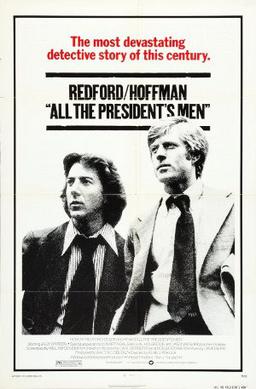
All the President's Men is a 1976 American biographical political drama thriller film about the Watergate scandal that brought down the presidency of Richard Nixon. Directed by Alan J. Pakula with a screenplay by William Goldman, it is based on the 1974 non-fiction book of the same name by Carl Bernstein and Bob Woodward, the two journalists investigating the scandal for The Washington Post.
This bibliography of Richard Nixon includes publications by Richard Nixon, the 37th president of the United States, and books and scholarly articles about him and his policies.

Dick is a 1999 comedy film directed by Andrew Fleming from a script he co-wrote with Sheryl Longin. It is a comic reimagining of the Watergate scandal which ended the presidency of Richard Nixon and features several cast members from Saturday Night Live and The Kids in the Hall. Kirsten Dunst and Michelle Williams star as Betsy and Arlene, two warm-hearted but unworldly 15-year-old friends, who – through various arbitrary circumstances – become the legendary "Deep Throat" figure who played a key role in bringing down the presidency of Nixon. At the time of the film's release, the real identity of Deep Throat was not yet known to the public.

Joseph Fred Buzhardt Jr was an American attorney and public servant. He is best known for serving as special White House Counsel to Richard Nixon during the Watergate scandal. Previously he had served as General Counsel of the Department of Defense and as a legislative aide to Senator Strom Thurmond.
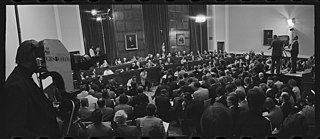
The impeachment process against Richard Nixon was initiated by the United States House of Representatives October 30, 1973, during the course of the Watergate scandal, when multiple resolutions calling for the impeachment of President Richard Nixon were introduced immediately following the series of high-level resignations and firings widely called the "Saturday Night Massacre". The House Committee on the Judiciary soon began an official investigation of the president's role in Watergate, and, in May 1974, commenced formal hearings on whether sufficient grounds existed to impeach Nixon of high crimes and misdemeanors under Article II, Section 4, of the United States Constitution. This investigation was undertaken one year after the United States Senate established the Select Committee on Presidential Campaign Activities to investigate the break-in at the Democratic National Committee headquarters at the Watergate office complex during the 1972 presidential election, and the Republican Nixon administration's attempted cover-up of its involvement; during those hearings the scope of the scandal became apparent and the existence of the Nixon White House tapes was revealed.
Judith Hoback Miller is a person who acted as an investigative source in the Watergate scandal in 1972 during the presidency of Richard Nixon. She served as the bookkeeper for the Committee for the Re-Election of the President.
Alice E. Mayhew was an American editor who was vice president and editorial director for Simon & Schuster. Mayhew edited many notable authors, which include Bob Woodward, President Jimmy Carter, Doris Kearns Goodwin, David Brooks, and Ruth Bader Ginsburg. Mayhew was known for publishing books about Washington, D.C., such as All the President's Men by Bob Woodward and Carl Bernstein using a genre which is known as a political narrative, a subgenre of creative nonfiction.
Richard Nixon, the 37th President of the United States, has inspired or been portrayed in numerous cultural works.

Fear: Trump in the White House is a non-fiction book by American journalist Bob Woodward about the presidency of Donald Trump. The book was released on September 11, 2018. Woodward based the book on hundreds of hours of interviews with members of the Trump administration. The book's publisher Simon & Schuster announced that it had sold 1.1 million copies in the first week of its release, making it the fastest selling opener in the company's history.
